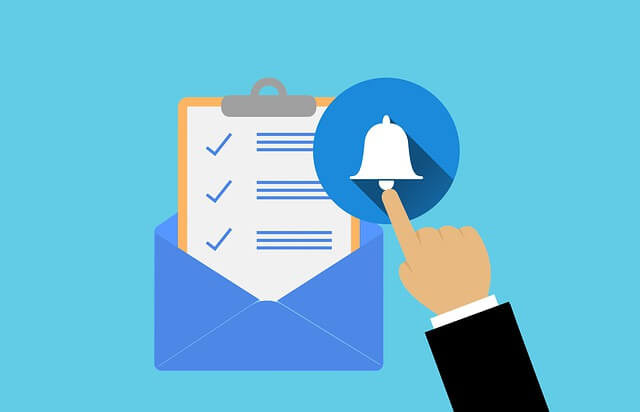Listen on Spotify.
We all know bad tech habits can really damage our productivity, but do you know which you’re prone to?
Resisting the urge to interact with the technology around us can be challenging. In consequence, it’s easy to pick up bad, unproductive tech habits without being aware of them.
In the rest of this post, we’ll go through some of the most common tech habits we develop and talk about how to overcome them.
Let’s dive in.
7 Unproductive Tech Habits and How to Deal with Them
Here, we explore the most common unproductive habits related to technology people may develop and what you can do to overcome them.
Later, we’ll find out why it’s a bad idea not to customise your notifications. Now though, let’s discover why you shouldn’t depend too heavily on Google or other search engines if you want to be productive.
1. Relying on Google Too Much

Remember when our research was limited to what we could find in books and archives and we use to have to go to the library to find stuff out? Crazy, right? With the arrival of the internet and the proliferation of search engines like Google, we now have an almost limitless amount of information at our fingertips. Indeed, there’s now so much information that we often become overwhelmed by it.
The ease of access we now have to information is mostly a good thing because we can get answers to our questions fast when needed. But there’s a downside too.
Developing an overreliance on search engines like Google, Bing or Microsoft can be detrimental to your attention span and memory, both of which can damage your productivity.
Is your first instinct when you need to answer a question to key it into a search engine? You’re not alone. The problem with this habit is that it gives your mind little room to wander and less space to reflect or engage in critical thinking. Thus, it curtails our ability to come up with creative solutions to problems.
To overcome this unproductive habit, when next you go to Google, pause, and try to remember the answer or to deduce it through logical reasoning before keying in a query. If you can’t come up with an answer, look it up, but try to remember that info for future use.
2. Incessantly Checking Emails
This habit often masquerades as a productive one. It can arise from a desire to stay on top of things. It’s a time-sucking habit that can be detrimental to your mental health and wellbeing.
If you find yourself checking your email every quarter of an hour, it’s time to take the first step towards breaking the habit. Try not to respond to triggers like pop-up notifications. Instead, take a moment at the beginning of your day to plan when you’re going to sort out your email. You might decide to do so once in the morning and once before you pack up for the day.
If you do this, you can be more mindful and be able to make the most of your time. For more tips on this subject, check out ‘How to Manage Your Inbox Like a Pro’.
3. Doom Scrolling on Your Phone
Do you continuously find yourself reaching for your phone and spending several minutes mindlessly scrolling? It can be so insidious that you don’t even realise you’re doing it. This can make it a difficult tech habit to break.
However, you will want to overcome this unproductive habit to remain efficient and effective. Try to be more intentional when using your phone and use it to do productive things. Read ‘11 Surprisingly Productive Things to Do on Your Phone‘ for some cool ideas.
4. Phubbing
Phubbing is when you snub someone in favour of using your mobile. You might end up disregarding your partner or ignoring your friends. At work, phubbing might mean you are not giving your colleagues the attention they’re due.
This habit can be disastrous for your productivity, as well as damaging to your relationships because it can signal a lack of interest in what you’re doing and a lack of respect for others.
If you’re guilty of doing this, keep your phone out of sight during meetings or conversations, so you won’t be tempted to use it. Alternatively, leave your phone on silent.
5. Social Media FOMO
FOMO (The Fear of Missing Out) is a 21st-century phenomenon created by the desire to be constantly connected to others. If you use social media a lot, you can have a real fear of missing out on something.
This fear often leads to compulsive checking of our social media feeds because we want to always know what’s happening. This results in us experiencing feelings of inadequacy, envy, and anxiety.
If the time you spend on social media is beginning to impact your productivity, it’s time to do something about it.
You might need to take a short break from social media. Check out ‘7 Great Advantages You Get When You Take a Break from Social Media’ for more detail. If you have severe FOMO, you might need to turn off notifications, or even delete your social media accounts entirely.
It’s time to find out why you need to customise your notifications if you want to break some of your bad tech habits.
6. Not Customising Your Notifications

This habit is strongly linked to the previous one on this list. While notifications can potentially be one of the most useful features of our digital devices, they are often also the most disruptive. They can help us stay on top of things, but they can also pull our attention away from what we’re supposed to be doing.
The ceaseless buzzing, pings, and dings can destroy your focus and wreck your productivity. It is therefore crucial to customise your notifications to maximise their usefulness and minimise disruptive elements.
To start off with, you could mute notifications for entertainment apps while at work, and mute work notifications when you’re not.
On iOS devices, you can use Focus Mode to switch off irrelevant notifications for a given period so that you can more easily enter a state of flow and get more done.
Another great tip is to set up a notification summary which will group all notifications together and deliver them all at a pre-determined time.
7. Using Too Many Productivity Apps
This one may not make much sense at first glance. After all, how can using productivity apps be counterproductive? There are multiple reasons why using these apps can make you less productive. For example:
- You must spend time working out how to use the app and setting it up. If you have too many productivity apps on your device, this could be overwhelming.
- You will context-switch more often the more notifications you receive, which will damage your productivity.
So instead of downloading every productivity app on the market and trying it out, take a more selective approach, and choose the right one for you. For a more in-depth look at the question of whether we should always use productivity apps, check out this post.
Wrapping Up
There you are. Our top 7 unproductive tech habits and how to deal with them. Always remember, technology is supposed to help us become more productive, not less.
You must take things into your own hands and address any unproductive tech habits you may have developed if you want to improve your ability to focus and save yourself time and energy.
Hopefully, by highlighting some of the most common such habits, we’ve helped give you the confidence needed to do just that.

I absolutely love reading your stuff. Technology is a great tool but also a great distraction if we use it wrong. I thought your point about Google was especially interesting; I love having the answer to anything and everything right at my fingertips and it frustrates me if I don’t have my phone or laptop on hand so I can look something up! But you’re right, it’s much better to consider the question yourself first and see if you can figure out the answer or at least get close to it. It can probably be a good exercise for our imaginations, too! I hope you don’t get tired of me asking but: can I reblog this post? I just love sharing your work, it’s so helpful! 😁
LikeLike
Thank you for the lovely comment, you’re always so kind. ☺️. Go ahead and reblog it. Glad you enjoyed it.
LikeLiked by 1 person